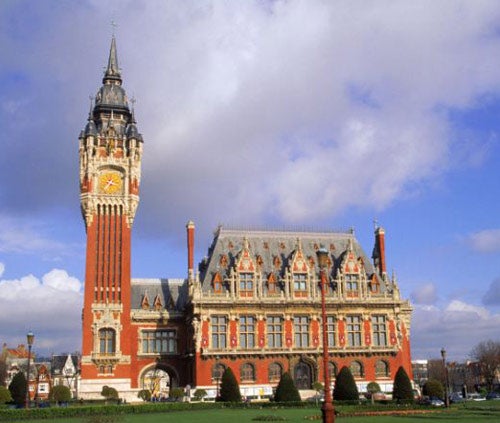Number-plate revolution sparks an uprising across France

Your support helps us to tell the story
From reproductive rights to climate change to Big Tech, The Independent is on the ground when the story is developing. Whether it's investigating the financials of Elon Musk's pro-Trump PAC or producing our latest documentary, 'The A Word', which shines a light on the American women fighting for reproductive rights, we know how important it is to parse out the facts from the messaging.
At such a critical moment in US history, we need reporters on the ground. Your donation allows us to keep sending journalists to speak to both sides of the story.
The Independent is trusted by Americans across the entire political spectrum. And unlike many other quality news outlets, we choose not to lock Americans out of our reporting and analysis with paywalls. We believe quality journalism should be available to everyone, paid for by those who can afford it.
Your support makes all the difference.There is an invaluable game that French motorists use to discourage children from asking: "Are we there yet?"
The game is called "spot the département". Every French schoolchild knows, or should know, 75. Many of them know 06 or 13. But where is 73? Or 45? Or 25?
It is possible, in theory, to tell the origin of every French car. Each of the French départements (or counties) has a code number (from 01 to 95). The code forms the last two figures on each car number plate.
Not for much longer, however. From the end of this year France will switch to new European-style number plates that will remain attached to a car from showroom to breaker's yard. There will be no reference to the département in the registration number.
Many départements are incensed. What is the point of this reform, they ask? To allow Parisians to drive incognito into the provinces and escape identification through the hated "75" on their number plates?
Further fuel has been poured on the flames by a a committee set up by President Nicolas Sarkozy to reduce French bureaucracy. Its report suggests that the 94 départements in mainland France and two in Corsica should be abolished altogether. They are an unnecessary tier of administration, the committee says.
Their powers – over some roads, some schools and some social benefits – would be better transferred to the 22 "regions" and 6,000 "super-communes" or villages, instead of the present 36,000, the smallest of which has a population of one.
Result: great fury and much anguished local pride.
The départements do not have as long a history as the British shires or counties. They were invented during the revolution in 1790 to help impose Parisian control on the provinces. They are almost all of equal size: the distance a government official could cover by horse from the département capital. They were nearly all given deliberately neutral names, taken from local rivers or other natural features to suppress regional identity. There are thus, confusingly, six départements which include the word "Loire" in their title, as well as two with "Loir" and one called "Loiret".
Just over two centuries later, the départements have become depositories of the local identity that they were invented to suppress.
Nine départements have made new year vows to fight the new number plates. Two of them, Vendeé (85), in the west, and Pas de Calais (62), in the far north, are planning to issue stickers showing the departmental number to every car sold locally. Pas de Calais has started a poster campaign: "le 62 c'est nous."
The hands-off-our-départements crusade is being led by Philippe de Villiers, an aristocratic, extreme nationalist politician who is also president of the Vendeé département council. "This is as an absurd drive for uniformity," he said. "We are mutilating all our roots, all our allegiances. Departmental identity is part of the richness of France."
Other départements which have protested against the reform are Ain (01), Ardeche (07), Aude (11), Gironde (33), Loir-et-Cher (41), Haut-Rhin (68) and Haute-Vienne (87).
The new number plates will have letters, then numbers, and then letters (such as AA-123-AA).
The Interior Ministry conceded last September that there could be a space to the right of the number for a regional badge or departmental insignia or number. It will, however, be up to each motorist to decide what sign he or she puts there. A proud Corsican living in Paris could identify himself with a "20A" or "20B" or the Corsican national emblem, a Moorish head.
The ministry insisted this week that it was, "out of the question" that a departmental number should be made obligatory. Each motorist should choose his or her own symbol.
As for the suggestion that départements should be scrapped to simplify French bureaucracy, the former prime minister, Jean-Pierre Raffarin, dismissed the idea as "crackpot". People were demanding more local control, not less, he said. If anything, France should abolish, or merge, its regions, not its départements.
Still trying to work out where to find 73, 45 and 25? They are Savoie (in the Alps), Loiret (south of Paris) and Doubs (on the Swiss border). Alpes-Maritime is 06; Bouches-du-Rhône is 13.
Join our commenting forum
Join thought-provoking conversations, follow other Independent readers and see their replies
Comments